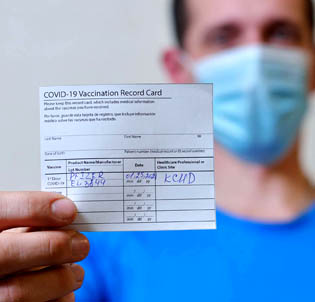Vaccine mandates create a conundrum for many contractors. While the U.S. Supreme Court decision denied the federal OSHA vaccine and testing mandate, some states still require workers to be vaccinated, and many construction owners have opted to require proof of vaccination for all their contractors and subs. View States-at-a-Glance Map for local mandate status.
Meanwhile, construction workers are statistically among the most hesitant to receive COVID-19 vaccines. According to a 2021 study by Carnegie Mellon University and the University of Pittsburgh, nearly half (46.4%) of construction workers said they would probably or definitely choose not to get a jab. Today, many general contractors are caught between an owner’s or government’s demands, their workers’ reluctance to get vaccinated—and an ongoing labor shortage in the industry.
Are There Any Advantages to Mandates?

How to Handle Labor Shortages in the Event of a Mandate
With the ongoing shortage of skilled labor in construction, many contractors are concerned about imposing a mandate that could result in losing some of their workforces. With that in mind, it’s best to start with an approach that gently encourages employees to take the shots rather than issuing an ultimatum.
If you have time and freedom to do so, try offering incentives first. And don’t assume that getting everyone vaccinated will stop the spread—especially with the latest variant. Consider implementing other mitigation efforts for keeping people well, such as having employees wear masks and work together in small cohorts to limit sickness and keep the virus from spreading throughout your workforce.

Enforcement and Accommodations
- ADA Accommodations
The American Disabilities Act (ADA) makes provisions for employees with disabilities that prevent them from receiving the COVID-19 vaccine. If there’s a direct threat to the employee’s health—in this case, typically if they are at high risk of complications should they contract the virus—the employer does not have to reasonably accommodate them under the mandate. If there’s not a direct threat, the employer and employee must work out a reasonable accommodation to ensure the person’s safety and those around them. This might include mask-wearing, social distancing, or periodic testing. - Title VII Accommodations
Created to prevent discrimination on the basis of religion, Title VII protects workers with sincerely held religious, ethical or moral beliefs. Under Title VII, employers must work with employees to determine if their beliefs fit under the law’s provisions and if so, agree on reasonable accommodations to mitigate risks.
